n°84 From the series: Tsuki No hyakushi (The hundred aspects of the moon)
1890
Publisher: Akiyama Buemon (Kokkeido)
Seal: Yoshitoshi
Engraver: Enkatsu
Oban
nishiki-e
Beautiful impression, beautiful colors, some folds in the upper border, some scattered foxing.
"In the Noh play Kinuta (named after the wooden roller on which the sheet was beaten), a man from Kyushu has been held for three years in the capital, awaiting a judicial verdict. Nostalgic for his distant western island, he sends his servant Yúgiri to assure his wife that he will return within the year. The wife rejoices at Yúgiri's visit, but longs for her husband. The two women then hear the sound of the sheet being beaten to wash it or soften it. This is an obvious allusion to a poem from Tang China, in which a man hears his wife beating the sheet despite the distance as she waits for him. Yugiri brings a kinuta to console his mistress, who joins her in the servile task of beating the sheet. When a new message arrives, informing her that her husband will not return within the year, the woman goes mad and dies of grief. Finally allowed to return home, The man learns of his wife's death. Her spirit appears to him to overwhelm him, but he manages to appease her by chanting the Lotus Sutra - some sects believe that one can attain salvation by repeating the name of this sutra alone. In the print, the wife beats the sheet, wrapped around her kinuta, with a wooden mallet. Clearly distant and absorbed in her work, she turns her back on Yugiri, who lowers her head. Rather than suggesting the comfort that the servant believed she was bringing, the image gives a feeling of dejection. The painted decoration of the screen, a bush of flowering lespedeza under the full moon, evokes autumn. The sharp vertical lines on the left side reveal the structure of the panels. The background is otherwise completely abstract, reduced to a light gray wash that sinks into darkness. While the maid's modern outfit is somewhat incongruous, the mistress wears an opulent dress worthy of a Noh costume. We glimpse a tabi, a custom-made sock separating the big toe. The name Yügiri, which means "evening mist", is borne by many figures in Japanese culture, starting with the prince's son in Genji monogatari."
In: ONE HUNDRED ASPECTS OF THE MOON, John STEVENSON, 2018, Editions Citadelles et MAZENOD
The sequel to "One Hundred Aspects of the Moon", inspired by historical or legendary stories from China and Japan, is Yoshitoshi's most famous series, begun in 1885 and completed just before his death in 1892. Even then, each new print published was an event, with prints often selling out the morning of their publication.
Image width: 224.00
Image height: 330.00
Sheet width: 250.00
Sheet height: 373.00











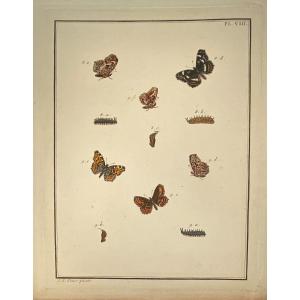
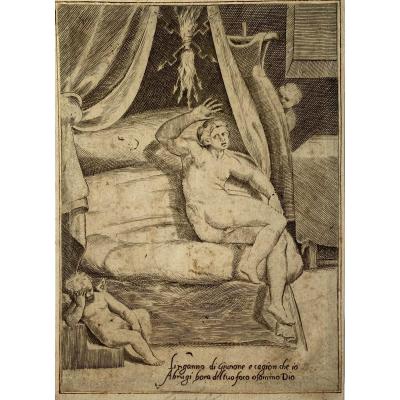
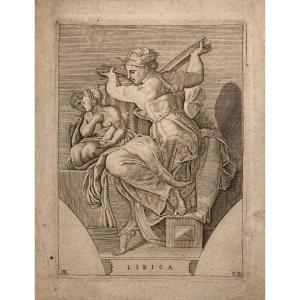

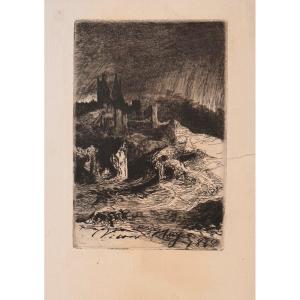
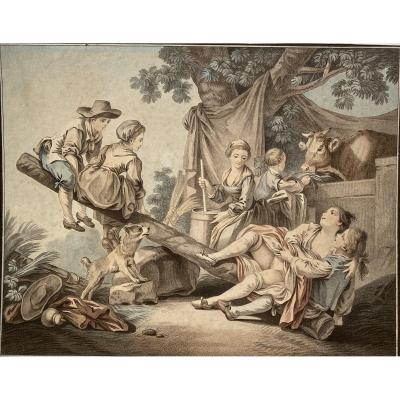
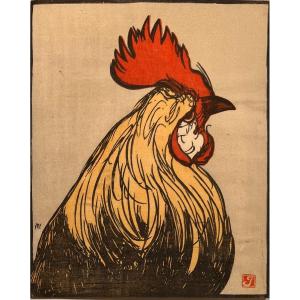




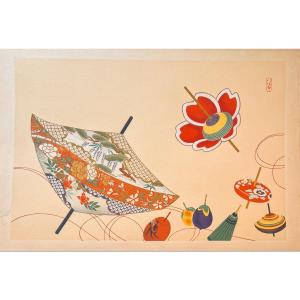





 Le Magazine de PROANTIC
Le Magazine de PROANTIC TRÉSORS Magazine
TRÉSORS Magazine Rivista Artiquariato
Rivista Artiquariato